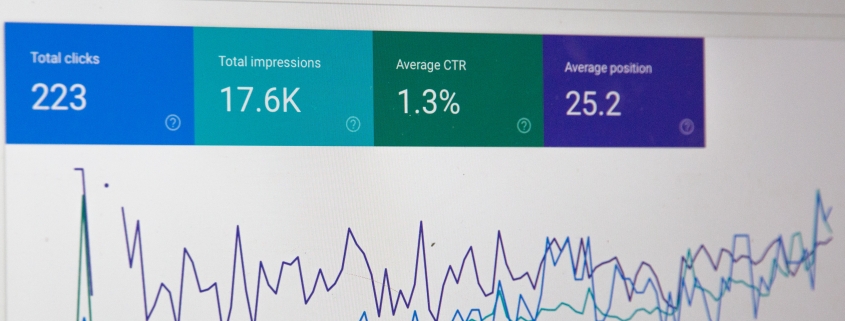How To Do B2B Keyword Research
Table of Contents
Business-to-Business (B2B) companies often feel SEO is not suited to their business model uncertainty around the return on investment. B2B companies are looking to secure as many leads as possible, which they can actively use to build a network of sustainable clients. Having a reasonable churn rate which they have full control over makes paid advertising an attractive option for many B2B companies.
Since B2B clients are part of highly specific niches and it can be tough to reach them when compared to B2C consumers, but it doesn’t mean it’s not possible, it only means you have to adjust your strategy slightly.
The fact that your client base is so niche may even play to your advantages in many cases if you know how to use keyword research and leverage it into an effective content strategy.
Paid search leads
B2B paid search ads brings with it some challenges in managing ad accounts. One of the first challenges you will need to overcome is deciding which keywords to use. Paid search ads often concentrate heavily on the end of the funnel keywords where users have high intent as well as generic services keywords.
These keywords are often expensive due to the high levels of competition and lead to competitors battling out for impression share.
Depending on your niche and competition locally or globally this can become a costly exercise and begin to eat into your margins which is why B2B companies need to look at SEO to help compliment page search campaigns and reduce CPA costs over time.
Keywords and ad copy relevance
When deciding on which keywords to target, we should think about what keywords represent: The possibility that your ad or link can be displayed to a searcher. The keyword itself is not necessarily good or bad for a company — it’s the ad that tries to match the users intent to the benefits the company offers.
When we review which keywords to use in a B2B account, you shouldn’t skip over relevant ones just because a B2C searcher will search; we should think differently about the ad itself.
Don’t merely discard keywords because they’re don’t match some rigid criteria but think of why consumers use these keywords and how to creatively connect with them via your ad copy or on-page content when targeting these keywords.
Keywords that are B2B & B2C
Specific keywords may have a B2B element but also a B2C element which means targeting the correct searchers can become trickily.
An example would be a keyword such as “Cloud Storage Services”, which keyword could represent:
- An individual looking for cloud storage options for documents and personal files
- A technology-savvy family looking to back up particular files
- A company looking to backup terabytes of data regularly
- A company looking to migrate from one cloud provider to another
In a case like this, the keyword itself is generic, so you need to filter your traffic via your landing page and segment them accordingly. Sending all users to one page for “cloud services” with a break down of your packages is a great way to segment users.
In this case, you could have two packages
- Migrating from server to cloud
- Switching cloud providers
If you don’t offer a service tailored to the user, that user will immediately bounce while those you do service, in this case, the B2B client, can find the service right for them.
Keywords that are only B2B
There are also more definitive keywords where it is most likely these words are being used by people who are actively looking for B2B solutions and service providers.
Queries:
- Payroll services
- IT outsourcing
- Document storage & records management
- CRM solutions
- Employee healthcare plans
While these are fairly straight forward, it does not mean that every query is the same and some searchers may add additional long-tail queries that require more context on your part.
For example, IT outsourcing could mean networking, custom web development, custom database development and more. Ensuring you have pages and campaigns that service all these sub-queries will result in a more personalized path for the searcher, which often leads to a higher chance of a conversion.
B2C Negative keywords
While I would always encourage you to be creative with the keywords you target, some keywords will never apply to your business. In SEO simply not creating content targeting these keywords would assist but with paid search, you may need to build up a comprehensive list of negative keywords.
As you build up data on keywords that do not perform and result in leads, you can add these search terms to your negative keyword list and have your ads skip these cost per click draining terms and focus your budget on better-performing keywords to win more impression share.
Wrap-up
While B2B companies face some challenges that consumer-facing companies don’t have, there are unique ways for B2B search marketers to grow their search, reduce cost per click and increase traffic and leads through careful planning and evaluation of search data.
B2B traffic isn’t all about volume but instead highly targeted campaigns hitting niches that may not always be popular in terms of searches. Still, the fact that your content and ads are so highly relevant and contextual to the users intent you can drive up conversions of these small user bases far higher than B2C search strategies ever could.
About the Author
Che Kohler is the co-founder of nichemarket, a South African Business Directory and digital marketing agency. He is an avid blogger who specializes in writing about marketing tech and cryptocurrency.




Leave a Reply
Want to join the discussion?Feel free to contribute!